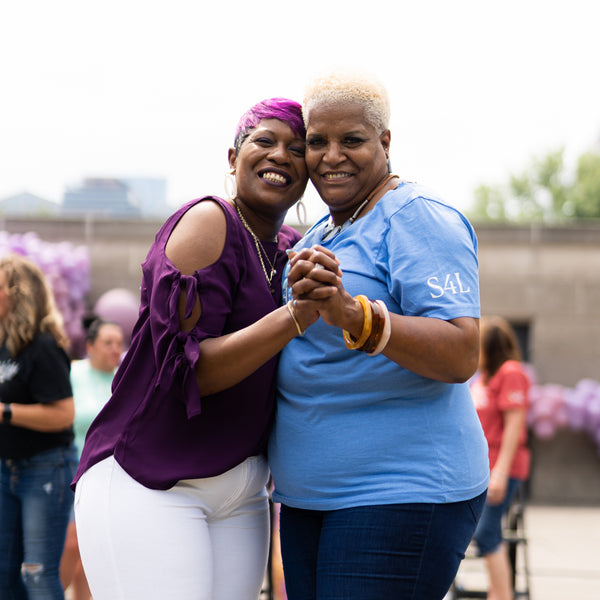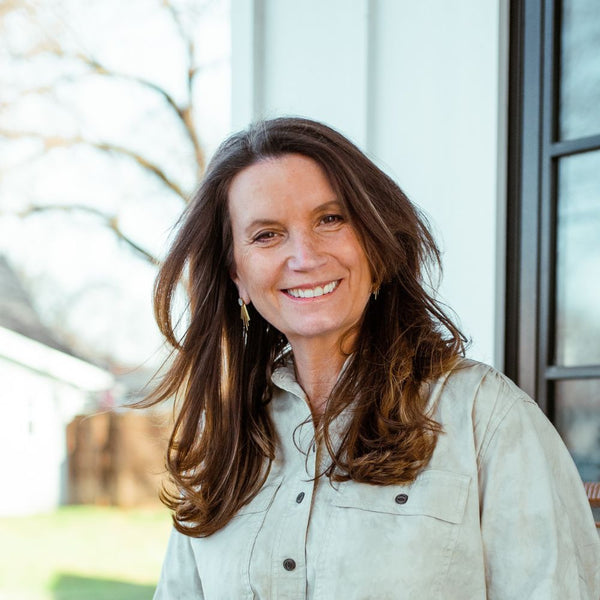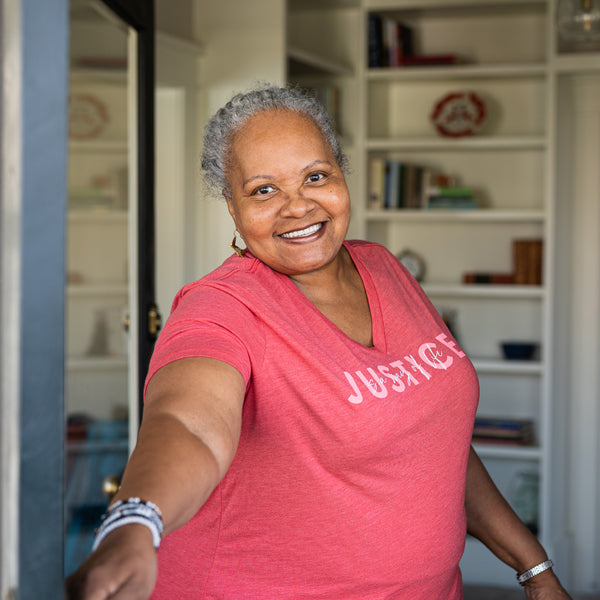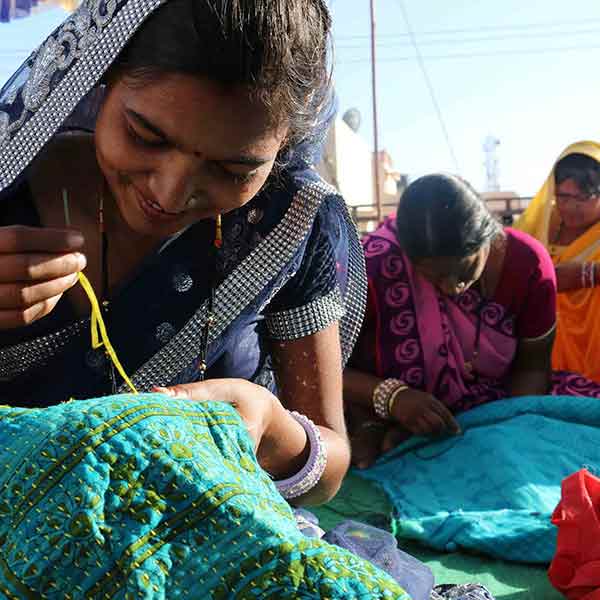The Unlikely Story of a Sex Trafficking Survivor and the Instagram Account That Saved Her Life
There are three types of pimps. Megan Lundstrom will tell you this. First, there’s the boyfriend pimp, the one who romances you with promises of a family, who coaxes you into turning tricks each night to finance a blissful future—the one you think you’re in love with, until the abuse becomes too much to bear. If you try to escape, the boyfriend pimp flips out.

Then there’s the CEO pimp. He’s flirty at first, but instead of wooing you, he works you to exhaustion with promises of modeling fame. He charges a “choosing fee” to enter his enterprise and a “leaving fee” to exit. He, too, gives you bruises, but this is business, and you’ve got a quota. You go on autopilot, which numbs the pain.
Finally, there’s the gorilla pimp. You might meet him at a bar and wake up later having been drugged, kidnapped, and raped.
Lundstrom will also tell you that she’s experienced two of the three pimps. But that’s just the beginning of her story. The 36-year-old Coloradan gained most of her knowledge about the so-called life after her escape, having traveled an unlikely path from sex work to sociology. Throughout her journey, she carried a secret—something that would send her career soaring.
COVID-19 has shaken up all kinds of professions—including, it seems, the world’s oldest.
The study of active commercial sex exploitation is relatively recent, with scholars often relying on secondary sources like court documents and police reports, which hardly scratch the surface. But such methods are of little use to Lundstrom, who lays claim to an underground gold mine of primary source material: a private Instagram account followed exclusively by active prostitutes and trafficking survivors.
Created a decade ago as her only means of socialization, the account at one point was co-opted by her pimp as a recruiting tool. But since Lundstrom’s escape, her following has surged from around 50 to more than 2,200 women, providing a database now used to unlock the mysteries of a brutal but hidden crime and expand the bounds of social science. This past year has been the most revelatory yet. COVID-19 has shaken up all kinds of professions—including, it seems, the world’s oldest—pulling many young women into a dangerous line of work in order to make ends meet.
Lundstrom was born in Greeley, Colorado, a university town of about 100,000 that was founded in 1870 as an experimental utopian community but is now mostly known for its smelly meatpacking plants. Her childhood was sheltered, with fresh-baked cookies awaiting her return from soccer practice or orchestra rehearsal. She made the honor roll and earned a college scholarship.
Plans changed when, at 18, she got pregnant by her boyfriend, a Kmart coworker. Lundstrom envisioned a domestic life, not uncommon for Greeley girls. But after a second child, their marriage fell apart, she says. At 23, she left her husband and moved to Denver with her kids to start a new life.
She found work as a teacher’s assistant, but Lundstrom struggled to pay her rent and bills. That’s when a friend told her about a website called SeekingArrangement. “She was like, ‘Think about it—you don’t want a committed long-term relationship, you just go on dates with rich men to nice restaurants,’ ” Lundstrom recalls. “It seemed super casual.”
The concept, known as “sugaring,” has been around since the early 1900s, when San Francisco socialite Alma de Bretteville coined the term “sugar daddy” in reference to her much older sugar-magnate husband, Adolph Spreckels—and has only grown in the age of online dating. Sites like SeekingArrangement (which Rep. Matt Gaetz allegedly used) often pair wealthy men with cash-strapped “sugar babies.” Money or gifts are often exchanged for going on dates. While Lundstrom didn’t realize it initially, sex is often a tacit part of sugar-dating. If that sounds like prostitution…well, based on her experiences, Lundstrom would argue it is.
As opposed to escorting, with inherent expectations, sugaring sites market themselves as progressive, win-win dating brokerages. But it’s all a sham, says Benjamin Gauen, a prosecutor for King County in Seattle who exclusively works on commercial sexual exploitation and human trafficking cases. “Sugar websites are the new frontier of exploitation because they blur the criminality of transaction,” he says. The victims in his professional orbit are minors; buyers are affluent and privileged.
SeekingArrangement founder and CEO Brandon Wade denies his site is a prostitution platform, suggesting that perhaps 5 percent of members “use it wrongly.” He works with the FBI, he says, and removes rogue users on a daily basis. “You want to hire a prostitute, there’s a much faster way to do that than play this dancing game,” he says. A “beginner’s guide” blog post on the site states “Sugar dating is just like any other dating. Sex should be aspired to, but never required.” And to be sure, not every sugar baby reports a negative experience. Some claim financial empowerment, while others question the difference between having sex with a stranger from a nightclub and a stranger met online.
After Lundstrom created her SeekingArrangement profile, she watched her inbox flood with messages, many about sex. The first guy rolled up in a luxury car with a giant long-haired dog in tow. Back at his open-concept loft in downtown Denver, he instructed Lundstrom to position herself on a particular side of the bed, then kept ducking out of sight, as if to adjust a hidden camera. The dog followed him everywhere. Lundstrom couldn’t go through with sex that night, though she did have intercourse with the next guy, who slapped her during the act and didn’t pay afterward. The third guy smoked lots of weed, listened to jam bands, and told her he’d post a favorable review on a local sex forum. That’s when Lundstrom realized she wasn’t a sugar baby. She was a prostitute.


Lundstrom gave Otto a down payment and wired the remaining money that month. By the time she drove a moving truck to Vegas with her kids, Otto had called Luther to settle the score: She’s my property now. In just one phone call, Otto had protected Lundstrom from Luther in a way the police couldn’t, even after ten 911 calls and a restraining order.
The following night, Lundstrom was collected by Otto’s “bottom girl”—a reference to a prostitute whose long-term loyalty earns her delegation power. As they worked a casino carpet, the bottom offered instructions. The first guy they propositioned turned out to be an undercover cop.
“Welcome to Vegas,” Otto said after bailing Lundstrom out. “No big deal—you’re getting felony money on misdemeanor charges.” Even so, she’d need to work off court fines and fees. Over several months, arrests were common. Lundstrom’s 5'8" frame, blonde hair, pink extensions, and angel-wing back tattoo left an impression on carpet-patrolling cops. Otto’s lawyer helped plea down the charges.
At the time, Instagram was taking off, and Lundstrom built a private account to connect with fellow prostitutes—a chance at a social outlet, a community. But eventually it became Otto’s recruiting tool. Monitoring the account daily, he barred her from communicating with anyone outside the life and forced her to post messages like, “My daddy’s amazing, you should come choose him up.” Her handle, as with most of Otto’s “girls,” including a modified spelling of the word bunny.

















